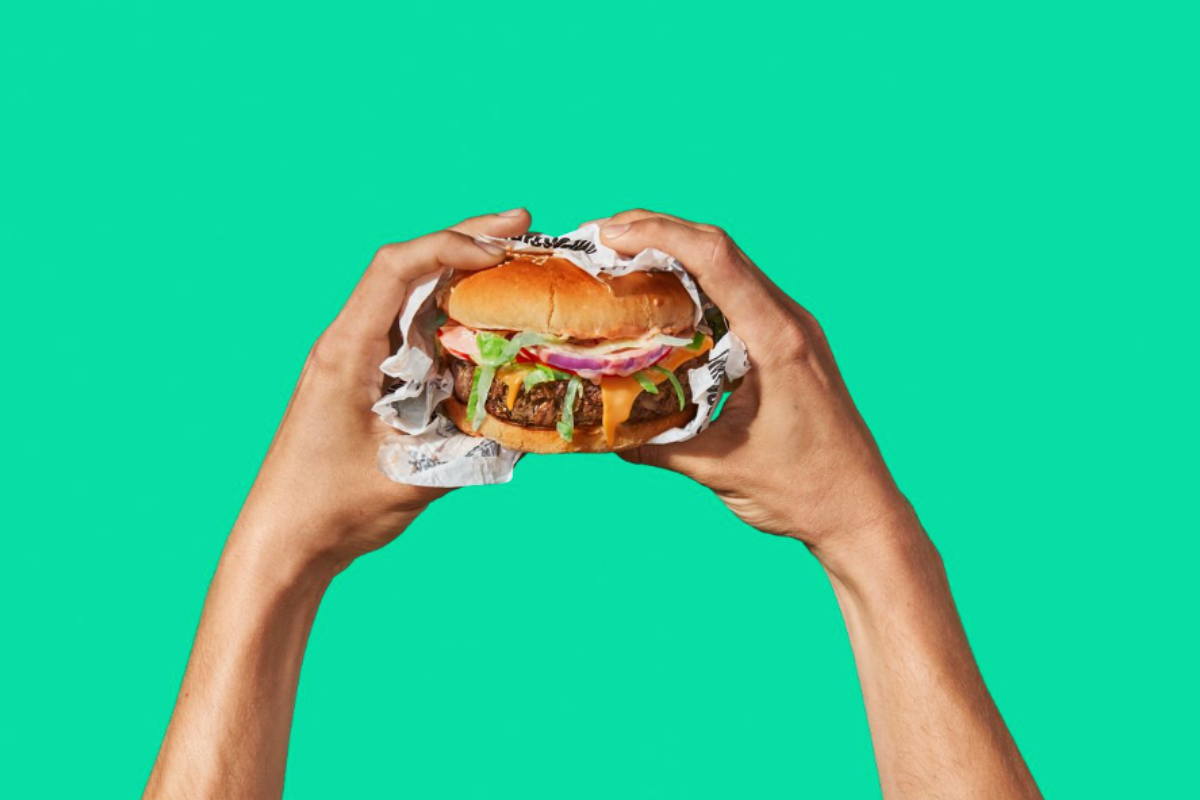By Fran Silverman and Meg McIntire
Where once vegans were limited to mushroom or lentil burgers, there now is an abundance of plant-based burger options on the market whether you’re grilling at a camp site, in your backyard or cooking in a skillet on your stove.
In addition to sparing the lives of sentient beings, removing beef from your BBQs will help mitigate climate change.
Worldwide meat production (beef, chicken and pork) accounts for 18 percent of greenhouse gas emissions, more than global transportation processes. A 1/3 pound burger requires 660 gallons of water. Most of this water is for producing beef. One pound of beef requires 1,799 gallons of water, which includes irrigation of the grains and grasses in feed, plus water for drinking and processing.
As the new administration brings climate change to the forefront, it is no wonder companies are making plant-based options a priority. The market is one of the fastest growing segments of the food industry. In 2002, plant-based meats were valued at $4.3 billion and expected to rise to $8.3 billion by 2025.
Impossible Food, which produces the Impossible Burger, has set a goal of eliminating animal products from the global food supply by 2035. And new technologies are allowing for more diversified ingredients. The Impossible Burger, for example, contains a compound that was created by the company from plant hemoglobins.
The plethora of plant-based patties on the market come with all sorts of exciting names, from the popular Impossible and Beyond burgers to the Awesome Burger and Perfect Burger. Many of the newer patties are derived from pea proteins. There are also soy-based burgers, seitan and traditional mushroom, black bean and chickpea options.
Grain-based burgers have the least calories and saturated fats but the Impossible Burger, made from soy, and the Beyond Burger, made from peas, have much more protein – about 20 grams.
Not all the meatless burgers are vegan though. So, here’s a rundown of ones that are:
Beyond Burger
This patty, made by El Segundo, California-based Beyond Meat, is gluten- and soy-free and non-GMO. A package of two patties sells for about $6.
Key ingredients include pea, rice and mung and fava bean protein, coconut oil and potato starch. There are 20 grams of protein and 350 milligrams of sodium per patty, and each has 260 calories.
Widely popular, Beyond Meat’s retail sales have more than doubled in a year and the company holds 10 percent of the meatless market. It’s got a crumbly texture and a bit of a smoky barbecue flavor.
Impossible Burger
This 240-calorie burger, which sells for about $9 for a 12-ounce package, is made by Impossible Foods of Redwood City, California.
It is gluten-free but includes genetically modified ingredients—specifically soy leghemoglobin, which is created from plant hemoglobins. Coconut and sunflower oils give the burger, which is made of soy and potato protein, its juicy sizzle. The Impossible Burger contains 19 grams of protein and 370 milligrams of sodium.
It was the favorite in Food & Wine’s plant-based burger taste test.
Lightlife Burger
Produced by Grenleaf Foods, a Toronto-based company, Lightlife burgers are gluten- and soy- free and non-GMO.
They sell for about $6 for two patties and the main ingredients are pea protein and canola and coconut oil with some beet powder for color. Each burger contains 20 grams of protein, 390 milligrams of sodium and 250 calories.
Sweet Earth Awesome Burger
The Awesome Burger, created by Sweet Earth Foods, provides a good source of protein, fiber and has a rich, smoky flavor created by the spice blend included in the burger. It is holds up well to grilling and is made from non-GMO ingredients. In addition, it contains 280 calories, 25 grams of protein and 360 milligrams of sodium.
Uncut Burger
Containing the least amount of sodium, this burger, created by the company Before the Butcher, is gluten-free, non-GMO and made from a proprietary combination of soy, coconut and canola oils, and natural seasonings. A 260-calorie burger contains 19 grams of protein and 260 milligrams of sodium.

